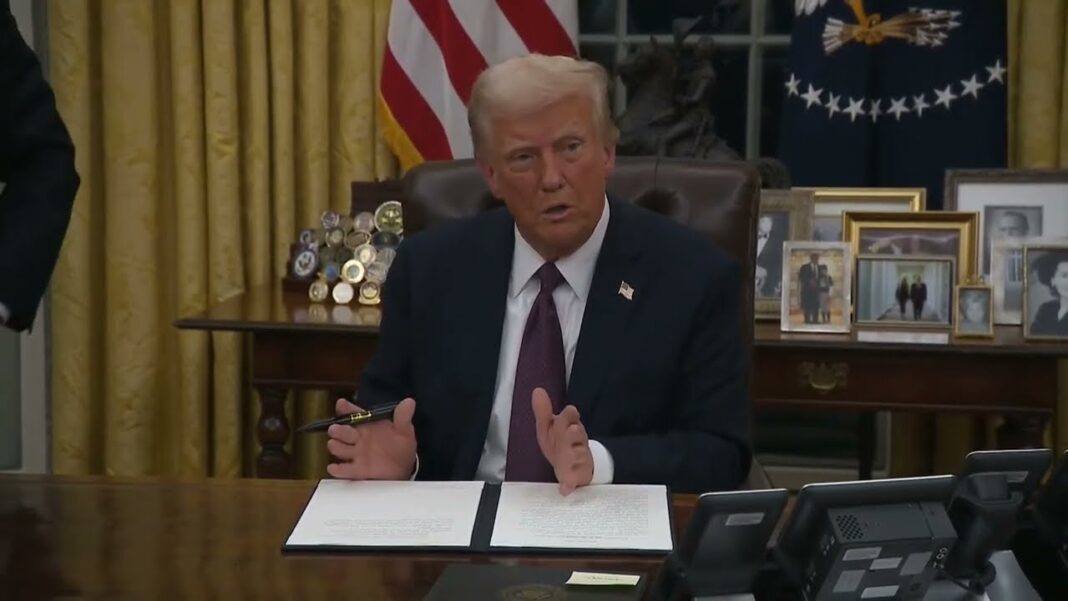The order violates the U.S. Constitution, the lawsuit alleges.
Groups sued President Donald Trump and his administration on Jan. 20 over his order ending birthright citizenship for certain individuals born in the United States in the future.
The groups say the order violates the U.S. Constitution’s citizenship clause, which states that “all persons born or naturalized in the United States and subject to the jurisdiction thereof, are citizens of the United States.”
Trump’s order, signed within hours of his taking office, states that the clause “has never been interpreted to extend citizenship universally to everyone born within the United States” and “has always excluded from birthright citizenship persons who were born in the United States but not ’subject to the jurisdiction thereof.’”
While most people born in the United States are citizens, citizenship is not automatically granted to those whose mothers are in the United States illegally and whose fathers are neither U.S. citizens nor lawful permanent residents, according to the order.
The American Civil Liberties Union (ACLU) and other groups suing over the order pointed to the U.S. Supreme Court’s 1898 ruling in United States v. Wong Kim Ark, which concluded that a boy born in the United States to Chinese citizens present in the country at the time of his birth was a U.S. citizen.
The groups also pointed to a law later passed by Congress that stated in part that a person born in the United States and “subject to the jurisdiction thereof” shall be a U.S. citizen at birth.
“Every child born in the United States should be born with the same rights as every other child—and that’s why the U.S. Constitution ensures that no politician can ever decide who among those born in our country is worthy of citizenship,” SangYeob Kim, a senior staff attorney with the ACLU, said in a statement. “Trump’s executive order directly opposes our Constitution, values, and history, and it would create a permanent, multigenerational subclass of people born in the U.S. but who are denied full rights.”
Other groups suing over the order include the National Association for the Advancement of Colored People’s Legal Defense and Educational Fund and the Asian Law Caucus.








